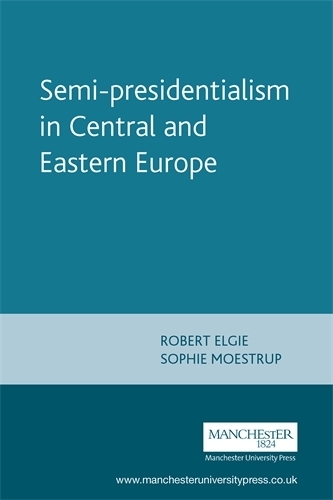
Semi-Presidentialism in Central and Eastern Europe
(Paperback)
Available Formats
Publishing Details
Semi-Presidentialism in Central and Eastern Europe
By (Author) Robert Elgie
Edited by Sophie Moestrup
Manchester University Press
Manchester University Press
30th May 2012
United Kingdom
Classifications
Tertiary Education
320.44
Physical Properties
Paperback
296
Width 156mm, Height 234mm
Description
This book, newly available in paperback, examines the extent to which semi-presidentialism has affected the process of democratization in Central and Eastern Europe since the early 1990s. The standard academic wisdom is that semi-presidentialism, where there is both a directly elected president and a prime minister who is responsible for the legislature, is a risky choice for nascent democracies because of the in-built potential for conflict between the president and the prime minister. This book demonstrates that semi-presidential regimes can operate in quite different ways, some with very strong presidents, some with strong prime ministers and ceremonial presidents and some with a balance of presidential and prime ministerial powers. In particular, the book analyses the specific impact of the various forms of semi-presidentialism that can be found in Central and Eastern Europe. With chapters on Bulgaria, Croatia, Lithuania, Macedonia, Moldova, Poland, Romania, Russia, Serbia, Slovakia, Slovenia and Ukraine, the book explores whether some forms of semi-presidentialism are more conducive to democratisation than others. It also looks at how semi-presidentialism may have helped democracy to survive and examines its impact on government performance in terms of stability and policy-making. -- .
Author Bio
Robert Elgie is Professor of Government and International Studies in the School of Law and Government, Dublin City University
Sophia Moestrup is Senior Program Manager at the National Democratic Institute for International Affairs (NDI) in Washington DC
